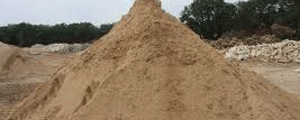
GIGANTIC trucks with no number plates carrying sand or bricks are a common, ugly sight on city roads.
Report by Jairos Saunyama Own Correspondent
The trucks look out of shape as they are out of condition.
Many accidents have occurred because of these unregistered and unroadworthy trucks that operate freely in and around Zimbabwe’s cities carrying the building materials.
The trucks, often referred to as Samaita, Museyamwa or Bad Boys, operate freely with most of them being used to carry poached sand, bricks and other building materials.
With the police, in conjunction with the city council, impounding unregistered commuter omnibuses and private cars, one wonders why these trucks are being spared as they continue to traverse city roads willy-nilly.
Their mere presence signify double crime — poaching and the use of unregistered vehicles on the roads.
Recently, more than 1 500 kombis were impounded under Operation Nguva Yakwana for being unregistered.
- Chamisa under fire over US$120K donation
- Mavhunga puts DeMbare into Chibuku quarterfinals
- Pension funds bet on Cabora Bassa oilfields
- Councils defy govt fire tender directive
Keep Reading
These big vehicles are easily identified by their old, scary and tattered appearance, at the same time rolling on old, threadless tyres as they move slowly down the roads without any lights.
They usually do not make it to their final destination as they break down on the road, leaving drivers with no option, but to use branches of tree branches with green leaves or plastic containers as warning signs in place of the red triangle.
The branches or tree branches are used to indicate the breakdown ahead.
Moreover, the trucks do not have registration plates or insurance discs.
A number of accidents whereby these trucks ram into other vehicles have been recorded.
On the other hand, sand poaching alone results in environmental degradation.
The house-building boom across cities has caused land degradation as the scramble for pit or river sand has fuelled rampant sand-poaching.
Truckloads of sand are transported daily from illegal extraction sites dotted across the city to construction sites.
But as the sand poachers smile all the way to the bank, they leave behind yawning craters on the earth’s surface with their dangerous trucks.
However, these unregistered trucks are seen passing through roadblocks despite them being unroadworthy.
“This is Zimbabwe, my friend. We came to Harare to find money and with this truck, I have been in the sand-poaching business for five years. I know my vehicle is not suitable for the road, but we know how to deal with the problem.
“We use alternative routes where we are sure that there are no police roadblocks and if there is one, we just bribe the officers and get away with it,” said Langton Shayamano, a sand poacher from Manyame Park, Chitungwiza.
He said they usually sold the sand at prices ranging from $40 to $50 per five cubic metres while the same amount of sand can be bought from $100 to $120 on the formal market.
Russell Makawa, a poacher based at Hopley Farm, said sand- poaching was the only source of income for the more than 70 youths involved in the practice.
“There is a high unemployment rate and sand poaching is helping us sustain our livelihoods. I think it’s better for us to fend for ourselves rather than to end up as robbers.
“To do this, I need to have an old truck that is cheap to maintain,” he said.
However, residents in the suburbs where poachers operate are unhappy and desperate as the trucks cause air pollution, land degradation, road accidents and noise pollution.
“Deep ponds have developed near our homes as the open pits have collected rain water and now our children are at risk of drowning. The government should intervene because the open pits also pose a health threat as they provide mosquitoes with breeding places,” said Kudzai Mugota of Epworth.
Environmental Management Authority communications and publicity officer Steady Kangata recently castigated the operations of sand poachers and called for every citizen to be responsible to ensure that sand poaching was eradicated.
“The police, city council and the communities where these crimes are committed must play a role.
“We do carry out patrols in the area but there is a need for stricter measures to deal with the problem.”
He also urged councils to find places where people could legally collect the sand from and also issue them permits as a way to curb poaching.
Urban farmers interviewed said they could no longer watch their land being destroyed by sand poachers who have even constructed roads through their fields.
“These guys are digging up land and do not respect the fact that we use it to farm,” fumed Lloyd Kawaza, a farmer in Epworth.
“Even after we have planted our crops, these guys make roads for the vehicles that ferry sand and destroy our crops,” said Norman Nhika.
Most farmers said they were farming on areas given to them by the City Council and called on the municipal authorities to look into the issue.











